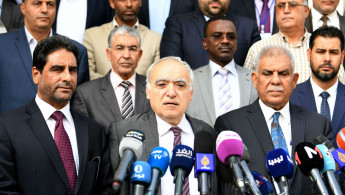Libya rivals made progress in Tunis talks: UN
UN envoy Ghassan Salame opened new talks in Tunisia between the rival Libyan administrations on Tuesday, less than a week after presenting a plan to end the chaos in the conflict-wracked country.
"After a week of joint work, we have reached consensus on a number of important issues that need to be amended so that this agreement corresponds to developments in the situation in Libya," Salame said on Sunday of the 2015 deal.
He told reporters in Gammarth, on the outskirts of the Tunisian capital, that the two sides would meet again in a week to continue examining "points that are still outstanding".
Mussa Fraj, a representative of the Tripoli-based administration, called the atmosphere at the discussions "positive".
Abdessalem Nssya, representing the parliament in the east, said the talks resulted in "very important compromises to reform the executive power", without providing specifics.
Salame, who was appointed UN envoy in July, presented his roadmap to the United Nations on September 20, outlining his hopes to give Libyans a future.
Under his plan, a new constitution must be put before a referendum, paving the way for elections.
Years of political turmoil since the 2011 overthrow of long-time dictator Mummer Qaddafi have left Libya divided between rival governments and beset by violence as militia forces battle for power.
A UN-backed agreement was reached in 2015 as the basis for a political process in Libya, and a unity government was formed with Fayez al-Sarraj as prime minister.
The Government of National Accord (GNA) took office in Tripoli in March 2016, and since then has extended its influence beyond the capital.
But it has struggled to impose its authority elsewhere, particularly in the far east where military strongman Khalifa Haftar controls much of the territory and supports a rival parliament.
Meanwhile in the west of the country, two Libyan tribal elders who have been key negotiators in reconciliation efforts between warring parties were murdered early on Friday morning.
Abdullah Nattat and Khames Esbeqa from the Werfalla Social Council for Reconciliation were passing through the northern Mizda district when their vehicle was fired on.
The driver and bodyguard who were in the car were also killed in the attack, Libya Observer reported.
The two elders from the Werfalla tribe had been negotiating with groups in Mizda when the attack took place.
Their efforts in trying to bring peace to the war-torn country were widely recognised in the country but little reported outside the country.
Agencies contributed to this report.





 Follow the Middle East's top stories in English at The New Arab on Google News
Follow the Middle East's top stories in English at The New Arab on Google News


